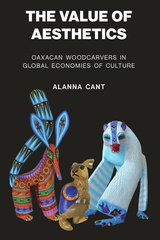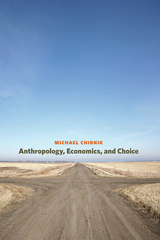Eating Soup without a Spoon
Anthropological Theory and Method in the Real World
Significant scholarship exists on anthropological fieldwork and methodologies. Some anthropologists have also published memoirs of their research experiences. Renowned anthropologist Jeffrey Cohen’s Eating Soup without a Spoon is a first-of-its-kind hybrid of the two, expertly melding story with methodology to create a compelling narrative of fieldwork that is deeply grounded in anthropological theory.
Cohen’s first foray into fieldwork was in 1992, when he lived in Santa Anna del Valle in rural Oaxaca, Mexico. While recounting his experiences studying how rural folks adapted to far-reaching economic changes, Cohen is candid about the mistakes he made and the struggles in the village. From the pressures of gaining the trust of a population to the fear of making errors in data collection, Cohen explores the intellectual processes behind ethnographic research. He offers tips for collecting data, avoiding pitfalls, and embracing the chaos and shocks that come with working in an unfamiliar environment. Cohen’s own photographs enrich his vivid portrayals of daily life.
In this groundbreaking work, Cohen discusses the adventure, wonder, community, and friendships he encountered during his first year of work, but, first and foremost, he writes in service to the field as a place to do research: to test ideas, develop theories, and model how humans cope and react to the world.
This is a significant contribution to the field. I cannot think of another book quite like it.
- Preface
- Acknowledgments
- Introduction
- Chapter 1. Setting Up and Settling In
- Chapter 2. The First Month and First Steps
- Chapter 3. Field Matters
- Chapter 4. The Rhythm of Fieldwork
- Chapter 5. Fine-Tuning and Focus in the Field
- Chapter 6. Bumps and Breaks in the Field
- Chapter 7. Finishing?
- Epilogue
- Notes
- Bibliography
- Index















